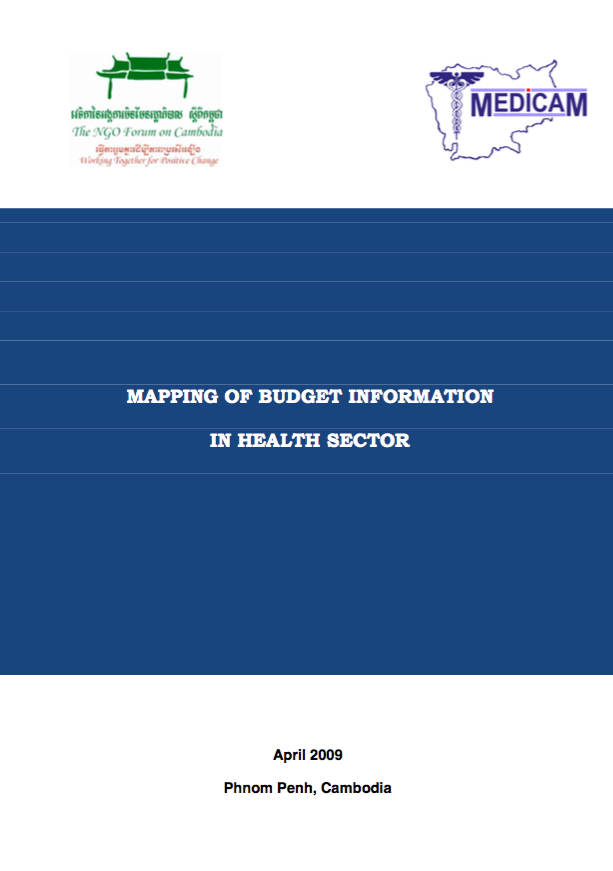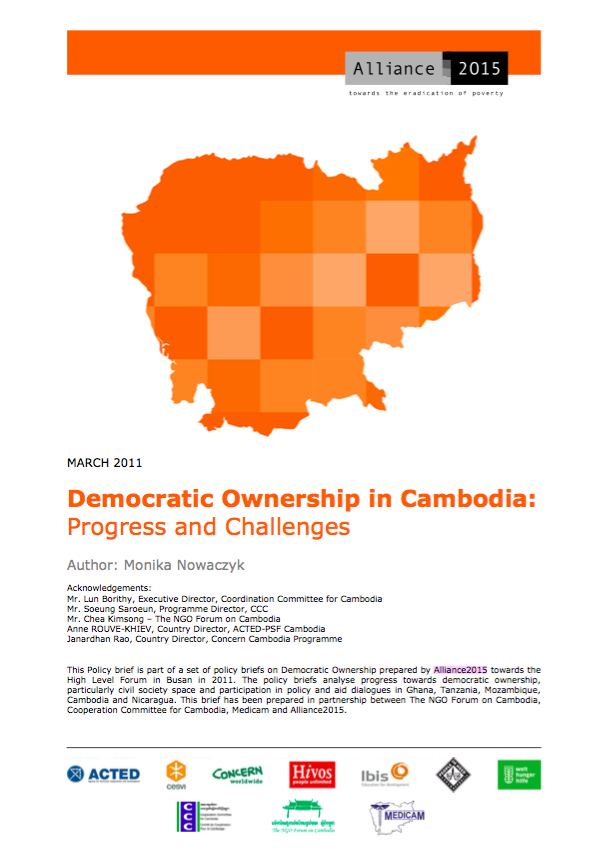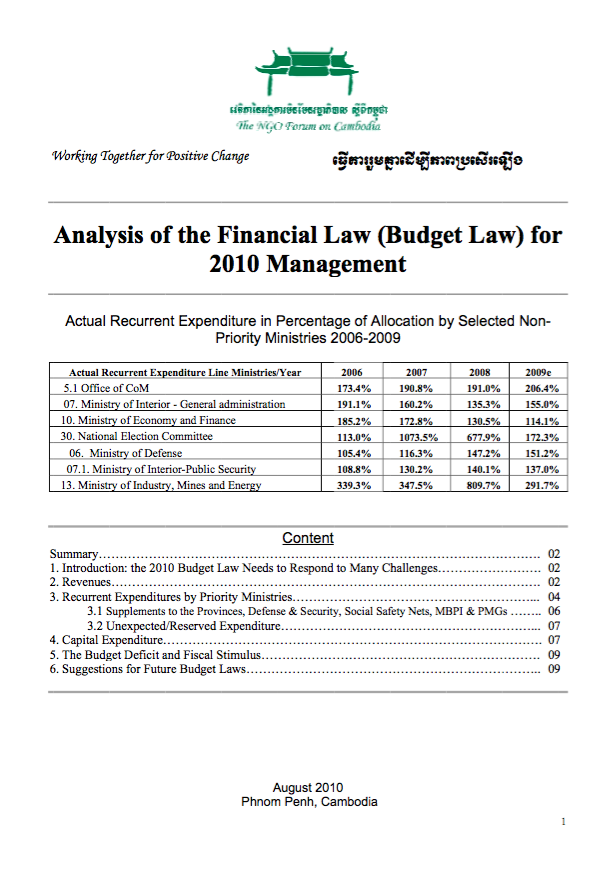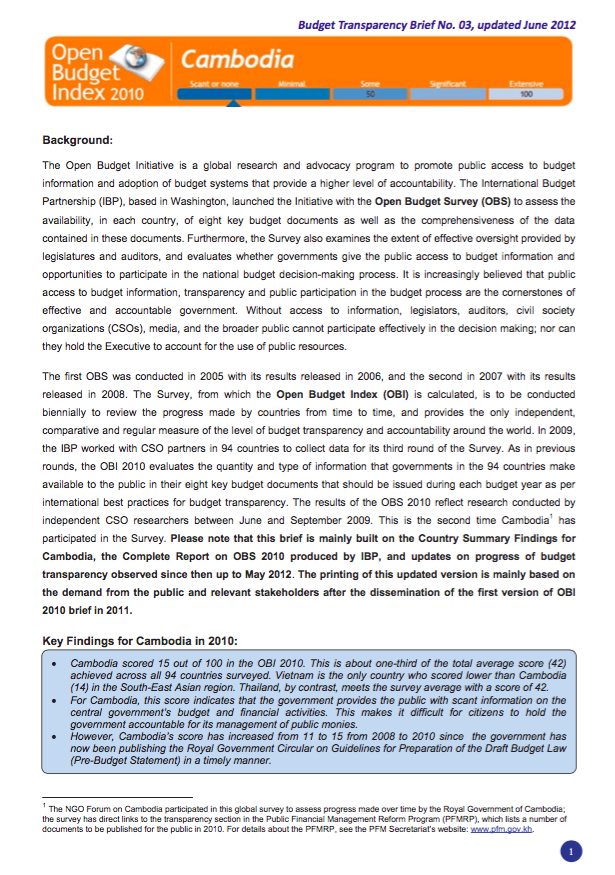
Mapping of Budget Information in Health Sector
Publication Year: 2009 / Sources: The NGO Forum on CambodiaThis budget mapping exercise was conducted in the period from December 2008 to February 2009. It seeks to provide a comprehensive overview of publicly available documents which will be helpful for NGOs to better understand planning and budgeting process in health sector. That understanding is expected to enable the NGOs to make sure that their programs are complementary to the efforts of the Royal Government of Cambodia.

Democratic Ownership in Cambodia: Progress and Challenges
Publication Year: 2011 / Sources: Alliance2015This country brief, prepared for Alliance2015, explores the issue of, and status of the progress towards, democratic ownership in Cambodia. The country brief focuses on five areas of analysis for the period 2008-2010: an enabling environment for civil society; ownership, accountability and participation; donor and government transparency in aid; donor conditionality; and finally the tying of aid and technical assistance. The brief shows the progress made in these areas as well as the challenges. Finally, lessons learned and recommendations for improving democratic ownership are given in the conclusion.

Analysis of the Financial Law (Budget Law) for 2010 Management
Publication Year: 2010 / Sources: The NGO Forum on CambodiaThe 2010 Budget Law shows that the Royal Government of Cambodia (RGC) expects to receive nearly two billion US dollars during the course of the year. Spending this revenue collected from taxes, fees and fines paid by citizens and companies, as well as the grants and loans from development partners, is the RGC most potent instrument to achieve the goals and objectives outlined in the Rectangular Strategy phase II and the National Strategic Development Plan (NSDP).

Open Budget Index 2010
Publication Year: 2010 / Sources: The NGO Forum on CambodiaThe Open Budget Initiative is a global research and advocacy program to promote public access to budget information and adoption of budget systems that provide a higher level of accountability. The International Budget Partnership (IBP), based in Washington, launched the Initiative with the Open Budget Survey (OBS) to assess the availability, in each country, of eight key budget documents as well as the comprehensiveness of the data contained in these documents.
